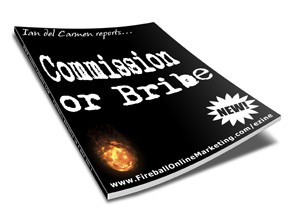
 License Type: Resell Rights
License Type: Resell Rights  File Size: 947 KB
File Size: 947 KB File Type: ZIP
File Type: ZIP
 SKU: 17861
SKU: 17861  Shipping: Online Download
Shipping: Online Download
Ebook Sample Content Preview:
You don’t want to get tangled up in bribery! The problem is it’s rarely easy to tell whether a proposed payment is actually a bribe. For instance, the FCPA doesn’t prohibit “grease payments” which are fees paid to foreign officials to expedite the actions the government would eventually take anyway, such as issuing a routine permit.
But suppose you need a permit to build an oil pipeline, and a government agent asks for a few thousand dollars for advising you on environmental issues and compliances to make sure you get the permit. Would that be a “grease payment,” or a bribe for the officials to look the other way?
In light of the new rulings and laws, people of authority rarely ask for bribes, but they may ask for a small payment for advice on doing business there. For instance, if a government agency asks your company to build a park or pave a road in exchange for approval, that wouldn’t count as a “bribe.”
This whole scenario is further complicated by the layers of people it might take to get a job done. So, if you hire an agent to work with an agent abroad, how do you know he isn’t paying bribes and implicating your firm in corruption? Know what the deal should cost, so you can tell if money is leaking out.
Because complying with the many overlapping laws is tricky, don’t try it alone. Hire a lawyer with experience in international business to help you through this minefield.
- File Size:947 KB
- License: Resell Rights
- Category:Ebooks
- Tags:2008 Ebooks Resale Rights







